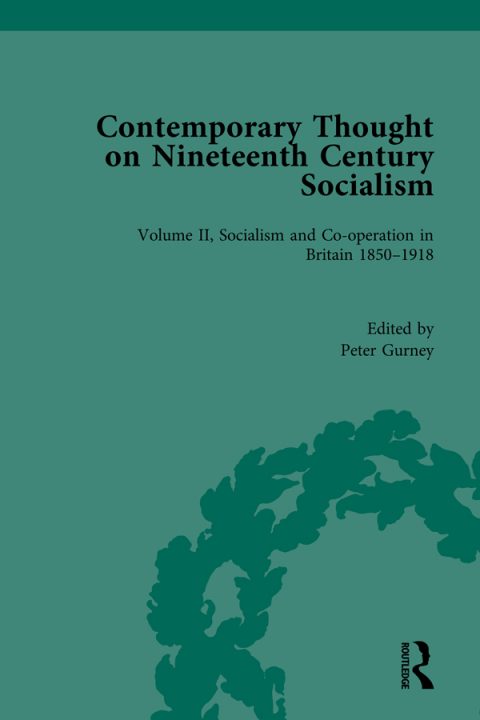Contemporary Thought on 19th Century Socialism Vol II: Socialism and
Co-operation in Britain 1850-1918 ed. Peter Gurney, Routledge, 2021 (£110)
Co-operation is just one idea and movement among many which means it’s always going to be subject to debate and external historic forces. For modern examples, see current debates over the nature of economic democracy; arguments over the place of co-ops as the UK Labour Party seeks to formulate a new vision; or moves in the US to create an eighth co-operative principle in response to the Black Lives Matter protests.

We’ve been here before; the 19th century, brought the horrific inequalities of the industrial revolution, which spurred the growth of modern co-operation alongside other radical ideas. Where co-operation sat on that reforming spectrum was hotly debated. Here, Peter Gurney presents a series of pamphlets, articles, letters and speeches which state that case for co-operation as a radical socialist force.
It’s a fascinating set of sources – some taken from Co-operative News, others coming from such familiar names as George Jacob Holyoake, Margaret Llewellyn-Davies and Beatrice Webb. They show radical co-op thought in various contexts – religious and secular; trade unionist and socialist; movements such as female emancipation are discussed and – in a piece by James Connolly, Irish republicanism.
Gurney hopes this will help to correct the tendency by “those historians of popular politics who have touched on co-operation [and] treat it mainly as a prop for liberalism, a legitimate albeit partial interpretation”.
He cites comments in 1908 by William Maxwell – ex-chairman of the Scottish Co-operative Wholesale Society and then-president of the International Co-operative Alliance – saying that co-operation was in fact “a socialism by itself, without State interference”.
Some radicals of the day had taken a disparaging view of co-operation, he says, as the activism of the Owenites and Chartists gave way to the consumer model of the Rochdale Pioneers.
The Pioneers were informed by Owen’s socialism, says Gurney, but “the continuing importance of the earlier legacy was for a long time downplayed in subsequent historiography. The dominant interpretation was that the so-called Rochdale model of co-operation, most particularly the introduction of the dividend on customers’ purchases, inaugurated a shift from ‘community building to shopkeeping’.”
Some Chartists were dismissive: Bronterre O’Brien branded co-operation a “shopocracy” and Ernest Jones rejected it as a diversion from the political struggle. Within the movement itself, Gurney sees similar debate over its radical spirit; he argues that Holyoake “appropriated” and “sanitised” Owen’s ideas, while “old Owenites including William Pare and Dr Henry Travis, who acted as Owen’s joint literary executors, communicated a rather different Owen through their writings, including articles in the pages of Henry Pitman’s Co-operator in the 1860s, then later in the Co-operative News”.
These tensions continued; later in the century there was disquiet when the movement was wooed by Gladstone, Bright and other free traders. Even so, argues Gurney, “leading co-operators spoke more often about the ultimate ambition of their movement in ways that made it difficult to distinguish easily between the co-operative and socialist project”.
That ambition runs through the pieces in this book – not least those taken from Co-op News itself. Debate about the role of co-operation also ran through the News’ letters pages; George Dawson from Sheffield wrote on 19 February 1876 to urge for “co-operation in its highest sense, or communism”, as an antidote to the inequities of the day. A similar note was struck by letter writer W.H.C, inspired by a visit to commune created on land near Totley, purchased by John Ruskin. On 15 August 1877, his letter described the community as “the modern pioneers of a new era of freedom from the powerful grasp of the privileged classes”.
A more familiar name also crops up in Co-op News. The Land! The Land! (5 Oct, 1872) is a defence of Owenism from William Pare, a political activist from Birmingham who organised the first modern Co-operative Congress in 1869. Here, he calls for the retail movement pool its surpluses to buy land to grow its own produce – sounding the optimistic note that “instead of the low sordid greed, cunning, lying, and cheating attendant on our present trade and commerce, a spirit of frankness, truth, and justice shall pervade all our dealings”.